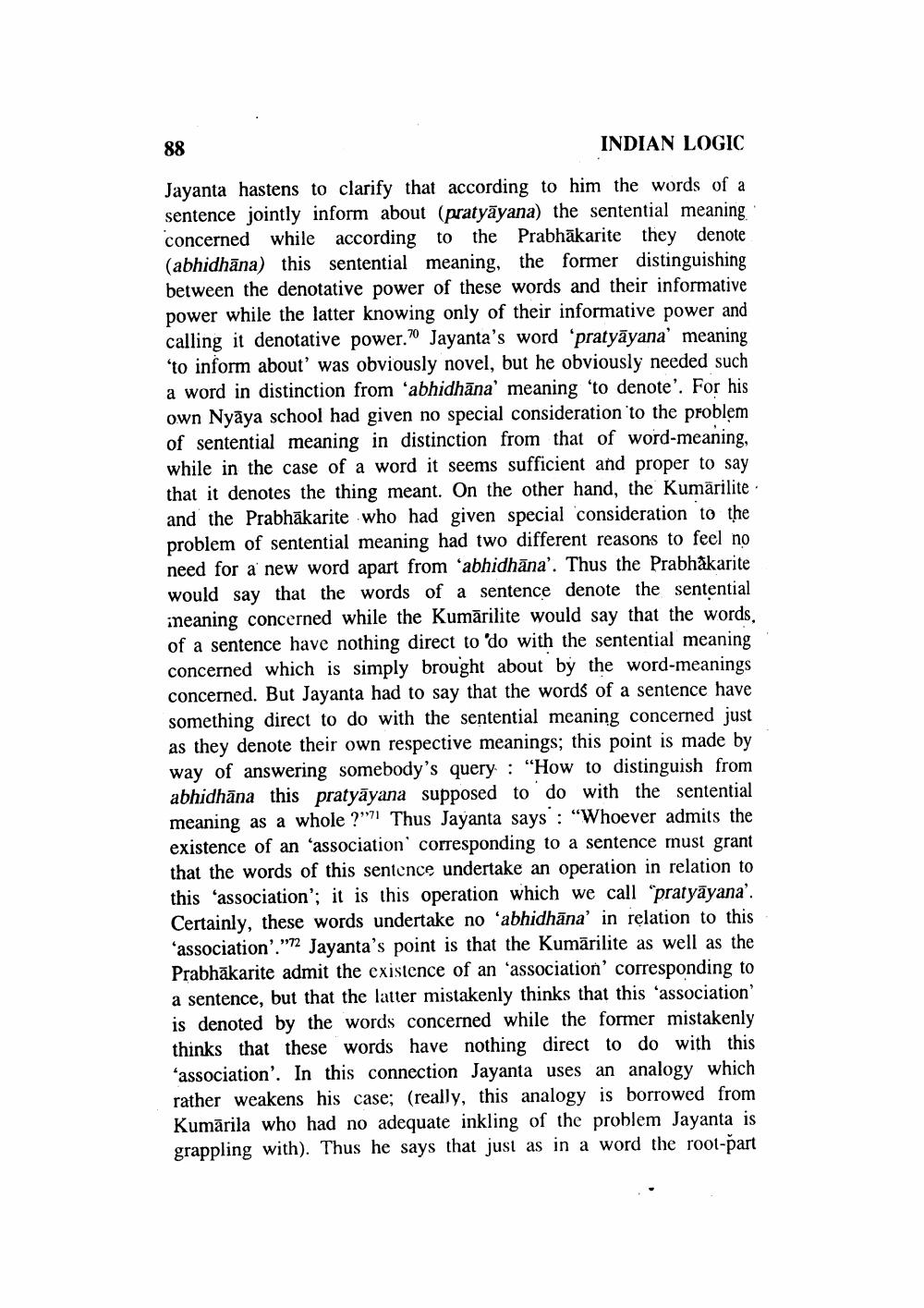________________
88
INDIAN LOGIC
Jayanta hastens to clarify that according to him the words of a sentence jointly inform about (pratyāyana) the sentential meaning, concerned while according to the Prabhākarite they denote (abhidhāna) this sentential meaning, the former distinguishing between the denotative power of these words and their informative power while the latter knowing only of their informative power and calling it denotative power."' Jayanta's word 'pratyāyana' meaning 'to inform about' was obviously novel, but he obviously needed such a word in distinction from 'abhidhāna' meaning 'to denote'. For his own Nyāya school had given no special consideration to the problem of sentential meaning in distinction from that of word-meaning, while in the case of a word it seems sufficient and proper to say that it denotes the thing meant. On the other hand, the Kumārilite · and the Prabhākarite who had given special consideration to the problem of sentential meaning had two different reasons to feel no need for a new word apart from ‘abhidhāna'. Thus the Prabhakarite would say that the words of a sentence denote the sentential ineaning concerned while the Kumārilite would say that the words, of a sentence have nothing direct to do with the sentential meaning concerned which is simply brought about by the word-meanings concerned. But Jayanta had to say that the words of a sentence have something direct to do with the sentential meaning concerned just as they denote their own respective meanings; this point is made by way of answering somebody's query : “How to distinguish from abhidhāna this pratyāyana supposed to do with the sentential meaning as a whole ?"?! Thus Jayanta says : "Whoever admits the existence of an 'association corresponding to a sentence must grant that the words of this sentence undertake an operation in relation to this 'association'; it is this operation which we call “pratyāyana'. Certainly, these words undertake no ‘abhidhāna' in relation to this 'association'. "72 Jayanta's point is that the Kumārilite as well as the Prabhākarite admit the existence of an 'association' corresponding to a sentence, but that the latter mistakenly thinks that this 'association? is denoted by the words concerned while the former mistakenly thinks that these words have nothing direct to do with this 'association'. In this connection Jayanta uses an analogy which rather weakens his case; (really, this analogy is borrowed from Kumārila who had no adequate inkling of the problem Jayanta is grappling with). Thus he says that just as in a word the root-part




